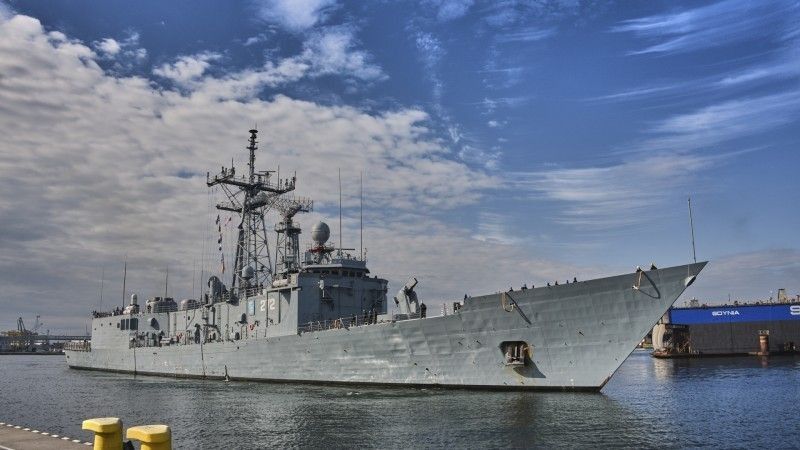Navy
Miecznik Programme in The Final Stage: Two Bids Selected by the Polish MoD

Photo. st. chor. sztab. mar. Piotr Leoniak, bsmt Michał Pietrzak
The Armament Agency announced that two best offers for the Miecznik frigate programme have been selected. Babcock Arrowhead 140PL (the UK), and tkMS A-300PL (Germany) designs got qualified to the next stage.
Following the analytical effort undertaken, three concept variants of the warship and integrated combat system were assessed, based on the proposals submitted by the foreign partners. The assessment was carried out based on criteria of tactical and technical parameters of the warships, their combat potential, possibility of unification available for the acquired equipment with the existing Polish Armed Forces' inventory, as well as the lifecycle cost and modernization potential. Three of the aforesaid warship platform designs that had been qualified to participate in the programme earlier on include the British Arrowhead 140PL (Babcock), German A-300PL (tkMS), and Spanish F100PL (Navantia) frigates.
The Armament Agency noted that the “point difference of the summed-up assessment of all solutions was insignificant, while the selection of each would translate into an acquisition of comparable operational capabilities for the Polish Navy, including the capability to pursue allied undertakings within the framework of NATO, such as missions carried out as a part of the NATO Standing Maritime Groups”.
Thus, a “first choice variant and alternative variants for completion of the Miecznik project” have been selected. As noted by the Armament Agency, the most attractive bids were placed by the German and British partners, while the point difference between them was lower than 5%. Another step would be to engage in negotiation between the PGZ-Miecznik consortium, and the foreign partners offering the warship platform, and the ship's combat system. One needs to note that the aforesaid consortium led by the PGZ Group shall be the main contractor (also involving the PGZ War Shipyard and the Remontowa Shipbuilding yard). The foreign partner, meanwhile, would be acting as a subcontractor, hence the necessity to conclude a B2B contract.
The ultimate conclusion of the B2B deal by the PGZ-Miecznik consortium, involving a foreign partner whose solution is the designated first choice, would depend on the final conditions and costs associated with the acquisition. Another aspect required to conclude the final agreement is the arrangement of the conditions by the industrial parties, making it possible to meet the requirements imposed on the contractor, with those requirements resulting on the grounds of the assessment of the emergence of the basic national security interest. This is tied directly to the necessary transfer of technology and establishment of the industrial potential domestically, at the Polish shipyards and research facilities.
If no agreement as such can be reached with the involvement of the first-choice partner, the contractor - the PGZ-Miecznik consortium - would begin talks with the foreign partner whose solution has been designated as choice number two. As noted by the Armament Agency, the final designation of the warship platform, along with the integrated combat system, would only be unveiled once the negotiation comes to an end.
Another stage of implementation is the preparation of the Initial Design for the selected solution and the development of the updated Industrial Feasibility Study and Technical-Economic Analysis. At the same time, a transfer of technology and know-how is to begin, along with the preparation of the Polish industrial assets required to launch the manufacturing of the Miecznik prototype, and the ship's combat system - the first warship in the series. According to the schedule adopted, the warships' would begin to be built in 2023, while the first vessel is to be ready by June 2028. Further deliveries would be finalized by 2034.
The Miecznik programme assumes that three frigates are procured, with anti-air, anti-surface, and anti-submarine capabilities, with air warfare being the main focus. The warships in question would replace the OHP frigates. They would also act as the Polish contribution to the standing NATO maritime groups. Miecznik is the biggest modernization programme currently pursued by the Polish Navy. The PGZ Group estimates that the three ships are worth PLN 8 bn. In practical terms, however, the cost in question may exceed PLN 10 bn.
